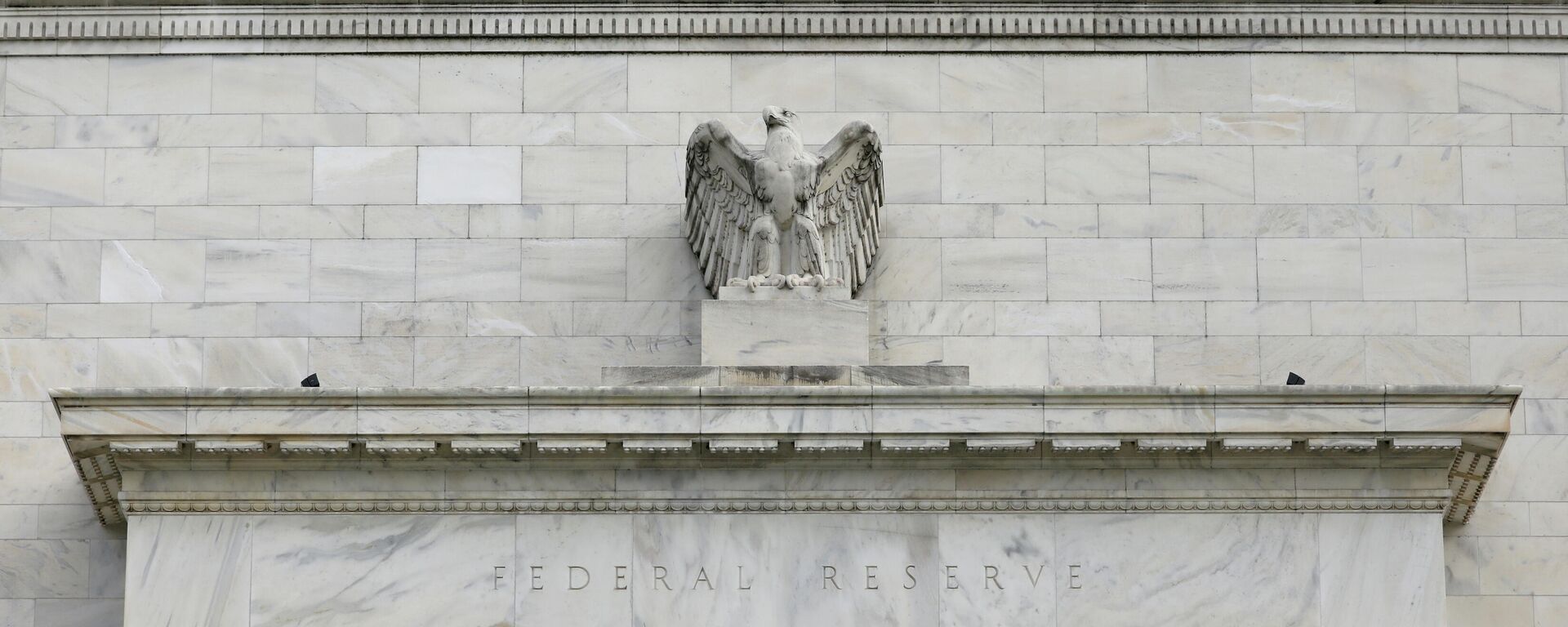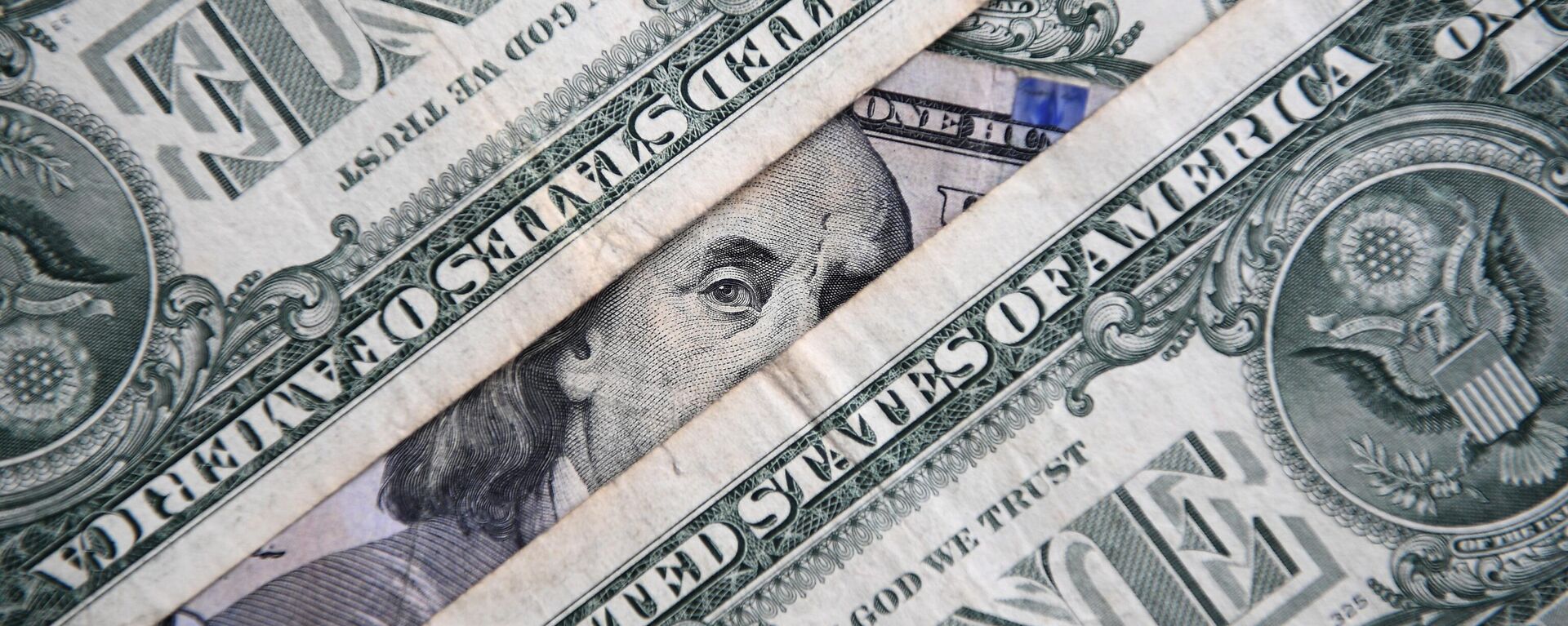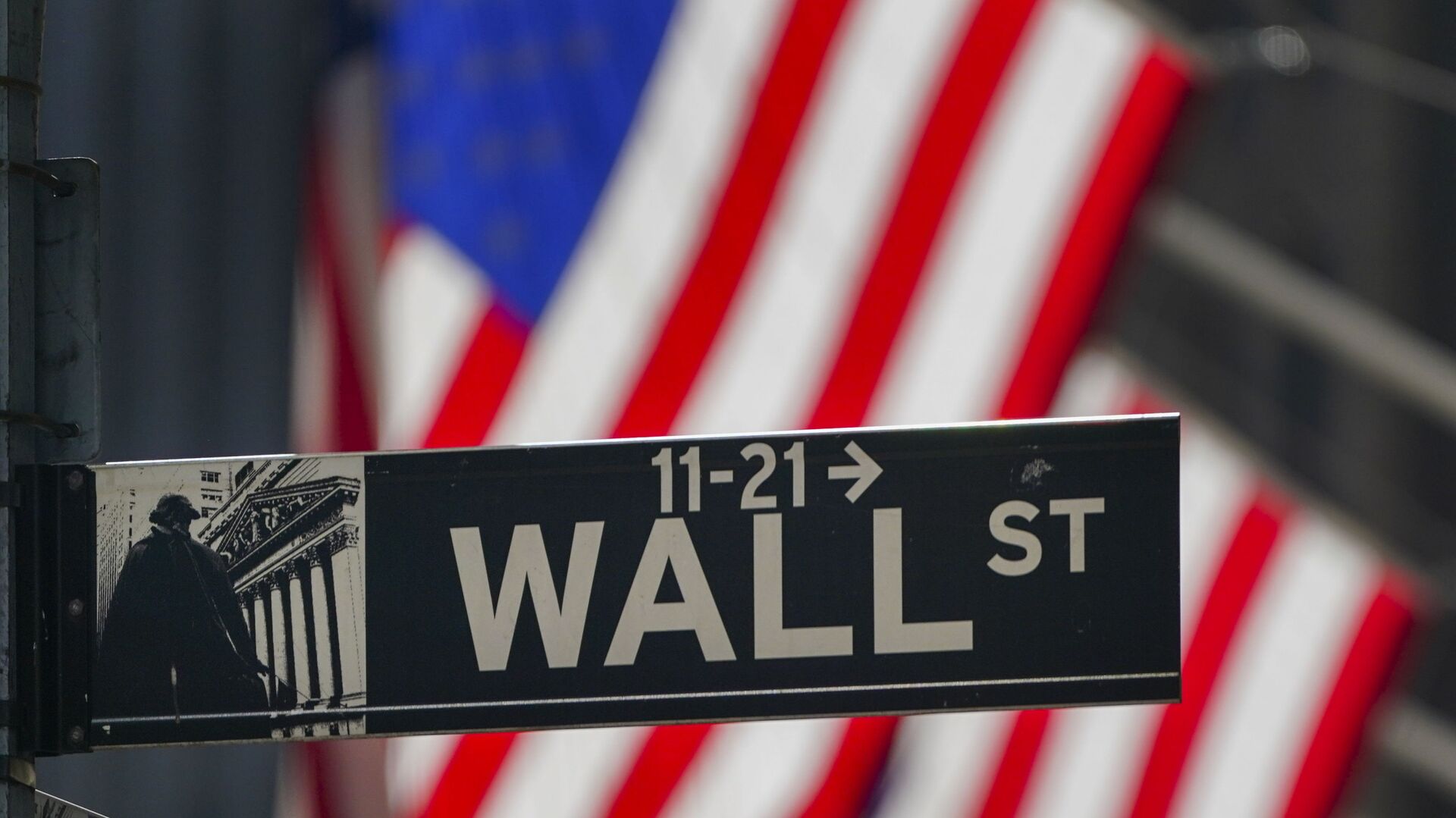https://sputnikglobe.com/20230213/is-the-us-economy-really-on-track-to-revival-devil-is-always-in-the-details-1107383806.html
Is the US Economy Really on Track to Revival? Devil is Always in the Details
Is the US Economy Really on Track to Revival? Devil is Always in the Details
Sputnik International
US President Joe Biden depicted an optimistic scenario for the American economy in his latest SOTU speech. Still, Federal Reserve Chairman Jerome Powell says... 13.02.2023, Sputnik International
2023-02-13T16:50+0000
2023-02-13T16:50+0000
2023-02-13T16:50+0000
americas
us
inflation
us economy
energy crisis
recession
us federal reserve
dollar
joe biden
employment
https://cdn1.img.sputnikglobe.com/img/07e4/0b/0c/1081144142_0:321:3071:2048_1920x0_80_0_0_854a3f00aa216d135650fdadae1c0ec0.jpg
Biden is promoting a US economic success story, referring to the nation's booming job market. For his part, Jerome Powell, chairman of the Board of Governors of the Federal Reserve System, says that if the US economy keeps powering ahead, the central bank will have to raise interest rates at least a couple of times in order to suppress inflation."It has a long way to go. These are the very early stages," Powell stated last week. Prices are still rising faster than they have in four decades, forcing the Federal Reserve to keep borrowing costs high in order to prevent further price increases.Everyone is anticipating the Labor Department's Tuesday report on the Consumer Price Index (CPI) for January. According to the US press, it is expected that the January report will show annual inflation at 6.2%, down from 6.5% in December 2022.On the one hand, that would represent the slowest rate since October 2021; but on the other hand, it would be the smallest decrease in the annual rate since September. Some experts suggest that the narrowing figure of decrease is caused by volatile energy prices.There are also other gauges to measure the temperature of the US economy. US government retail trade data is due to be released on Wednesday, while on Thursday, the Producer Price Index (PPI) will show how quickly prices are rising. Retail sales are expected to have bounced back in January, after they plummeted 1.1% month-over-month in December 2022. When it comes to PPI, some analysts suggest that it rose 0.4%, a hike from a decline of 0.5% reported in December 2022.Meanwhile, US industrial production fell 0.7% in December 2022, marking the steepest decline since September 2021. In the fourth quarter, the production was down at a 1.7% annual rate. Capacity utilization fell to 78.8% in December 2022, indicating the limits to operating the nation’s factories, mines and utilities. According to the US press, manufacturing alone dropped 1.3% in December, after a 1.1% slide in November. Motor vehicles and spare parts output plummeted 1% in December, after a 3.5% fall in the previous month. Mining output, which includes oil and natural gas, slid 0.9%, after a 1.2% fall in the prior month. While the January 2023 data will show the development of the trend, American economic observers warned last month that weakness in industrial output is gathering steam in the US.The anticipated interest rate hikes will bolster borrowing costs and slow demand, thus having a further negative impact on US production output.Moreover, the US Commerce Department revealed earlier this month that the US trade deficit soared to almost $1 trillion in 2022. The Federal Reserve's interest rate hikes strengthened the US dollar, which eventually made foreign goods cheaper than American ones, fanning the trade deficit up. US economists have traditionally warned that a growing trade deficit could result in further loss of manufacturing jobs, depressed wages, and slower economic growth. Still, many of the US' production facilities remain overseas.It is still unclear how Russia's decision to voluntarily reduce oil production by 500,000 barrels per day in March will influence global energy prices and US inflation figures. Moscow's move was prompted by the G7's anti-free market price-capping policy aimed against Russia's oil producers.Even though some US economists allege that a 500,000 barrel-a-day cut is not the "worst-case scenario," they admit at the same time that it sets a precedent for potential further cuts ahead. The OPEC+ does not seem willing to immediately "fill" the forthcoming gap. In addition, China’s swift reopening of its economy is pushing up estimates for global oil demand. All of the above is likely to whip crude prices up."We’re the only country that has emerged from every crisis we’ve ever entered stronger than when we got into it," US President Joe Biden claimed during his State of the Union speech earlier this month. However, it seems that the overall picture is more complicated and less optimistic than the US president and his entourage believe.
https://sputnikglobe.com/20230201/us-federal-reserve-raises-interest-rates-by-25-basis-points-in-bid-to-ease-inflation-1106896587.html
https://sputnikglobe.com/20230208/us-trade-deficit-reaches-nearly-1-trillion-what-does-this-say-about-the-american-economy-1107082962.html
americas
Sputnik International
feedback@sputniknews.com
+74956456601
MIA „Rossiya Segodnya“
2023
News
en_EN
Sputnik International
feedback@sputniknews.com
+74956456601
MIA „Rossiya Segodnya“
Sputnik International
feedback@sputniknews.com
+74956456601
MIA „Rossiya Segodnya“
us economy, federal reserve interest rate hikes, disinflation in the us, inflation figures, us industrial output is weakening, us trade deficit is rising
us economy, federal reserve interest rate hikes, disinflation in the us, inflation figures, us industrial output is weakening, us trade deficit is rising
Is the US Economy Really on Track to Revival? Devil is Always in the Details
US President Joe Biden depicted an optimistic scenario for the American economy in his latest SOTU speech. Still, Federal Reserve Chairman Jerome Powell says it's too early to pop open the champagne.
Biden is promoting a US economic success story, referring to the nation's booming job market. For his part, Jerome Powell, chairman of the Board of Governors of the Federal Reserve System, says that if the US economy keeps powering ahead, the central bank will have to raise interest rates at least a couple of times in order to suppress inflation.
"It has a long way to go. These are the very early stages," Powell stated last week. Prices are still rising faster than they have in four decades, forcing the Federal Reserve to keep borrowing costs high in order to prevent further price increases. Everyone is anticipating the Labor Department's Tuesday report on the Consumer Price Index (CPI) for January. According to the US press, it is expected that the January report will show annual inflation at 6.2%, down from 6.5% in December 2022.
On the one hand, that would represent the slowest rate since October 2021; but on the other hand, it would be the smallest decrease in the annual rate since September. Some experts suggest that the narrowing figure of decrease is caused by volatile energy prices.

1 February 2023, 19:24 GMT
There are also other gauges to measure the temperature of the US economy. US government retail trade data is due to be released on Wednesday, while on Thursday, the Producer Price Index (PPI) will show how quickly prices are rising. Retail sales are expected to have bounced back in January, after they plummeted 1.1% month-over-month in December 2022. When it comes to PPI, some analysts suggest that it rose 0.4%, a hike from a decline of 0.5% reported in December 2022.
Meanwhile, US industrial production fell 0.7% in December 2022, marking the steepest decline since September 2021. In the fourth quarter, the production was down at a 1.7% annual rate. Capacity utilization fell to 78.8% in December 2022, indicating the limits to operating the nation’s factories, mines and utilities. According to the US press, manufacturing alone dropped 1.3% in December, after a 1.1% slide in November. Motor vehicles and spare parts output plummeted 1% in December, after a 3.5% fall in the previous month. Mining output, which includes oil and natural gas, slid 0.9%, after a 1.2% fall in the prior month. While the January 2023 data will show the development of the trend, American economic observers warned last month that weakness in industrial output is gathering steam in the US.
The anticipated interest rate hikes will bolster borrowing costs and slow demand, thus having a further negative impact on US production output.

8 February 2023, 15:59 GMT
Moreover, the US Commerce Department revealed earlier this month that
the US trade deficit soared to almost $1 trillion in 2022. The Federal Reserve's interest rate hikes strengthened the US dollar, which eventually made foreign goods cheaper than American ones, fanning the trade deficit up. US economists have traditionally warned that a growing trade deficit could result in further loss of manufacturing jobs, depressed wages, and slower economic growth. Still, many of the US' production facilities remain overseas.
It is still unclear how Russia's decision to voluntarily reduce oil production by 500,000 barrels per day in March will influence global energy prices and US inflation figures. Moscow's move was prompted by the G7's anti-free market price-capping policy aimed against Russia's oil producers.
Even though some US economists allege that a 500,000 barrel-a-day cut is not the "worst-case scenario," they admit at the same time that it sets a precedent for potential further cuts ahead. The OPEC+ does not seem willing to immediately "fill" the forthcoming gap. In addition, China’s swift reopening of its economy is pushing up estimates for global oil demand. All of the above is likely to whip crude prices up.
"We’re the only country that has emerged from every crisis we’ve ever entered stronger than when we got into it," US President Joe Biden claimed during his State of the Union speech earlier this month. However, it seems that the overall picture is more complicated and less optimistic than the US president and his entourage believe.




